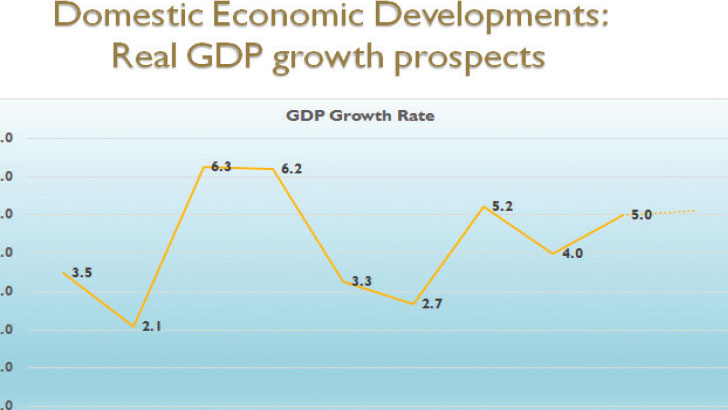Economists, mlusu differ on outlook
While government is projecting a rebound in the macroeconomic environment on the premise of good weather conditions and the Affordable Inputs Programme (AIP), economists are cautious, saying the economy is still vulnerable to some shocks.
Presenting the 2021/22 Budget Statement in Parliament on Friday, Finance Minister Felix Mlusu projected the economy to register real economic growth rate of 3.8 percent in 2021 and 5.4 percent in 2022 as economic prospects for Malawi are showing signs of recovery following the declining Covid-19 cases and steady progress in rolling out the vaccine.
He also projected inflation rate at 7.5 percent in 2021 and 7.3 percent in 2022, adding that the exchange rate will be stable at K780 to a dollar.

But while acknowledging that the economic underpinnings and prospects are some good news that Malawians can use, the analysts have urged caution, saying attaining the same would not be easy, at least for now.
In his reaction, Malawi University of Business and Applied Sciences (Mubus) associate professor of economics Betchani Tchereni said many of the assumptions do not seem realistic.
He said: “Only growth can be projected as such and maybe it can affect the other variables. But in reality, we are not expecting the exchange rate to be at K780 to a dollar. We think there will be a depreciation ,especially looking at the ever widening trade balance.
“Interest rates may be a deliberate policy issue, but inflation especially after the harvesting period may not behave well.”
He said when the assumptions are not realistic, chances of not actualising the budget also rise.
Financial Market Dealers Association president Mclewen Sikwese, in an interview said the assumptions present an optimistic outlook of the economy in the short to medium-term.
He said: “The kwacha is already trading at a level beyond K780 to a dollar as per the current rate of around K803 to a dollar that is a three percent differential already.
“With the reserves position low and the existing backlog of foreign exchange bills in the market, the prospects of an appreciation of the kwacha remain remote. We are more likely to see a marginal depreciation of the kwacha than an appreciation post the tobacco season.”
Sikwese added that considering that a considerable portion of the budget, such as AIP, infrastructure projects and foreign debt repayments is referenced to foreign currency, the costs of those initiatives will increase beyond the budgeted levels and place the extra pressure on the financial plan.
On his part, University of Malawi economics professor Ben Kaluwa, while highlighting that the projections reflect the thinking of government, noted that the forecast will not be relevant if they will have no impact at micro level.
Meanwhile, Malawi’s year-on-year headline inflation has averaged 8.65 percent between January and April this year, slightly above the 2021 inflation target of 8.4 percent.
The Reserve Bank of Malawi (RBM), custodians of the monetary policy, projected that headline inflation would average 8.4 percent in 2021, up from 7.6 percent projected during the second Monetary Policy Committee (MPC) meeting.
The revision, among others, considered the impact of the lagged effects of the upward adjustments of fuel prices implemented in March 2021 and the anticipated continued depreciation of the kwacha.
Meanwhile, gross official reserves continue to dwindle.
RBM figures show that gross official reserves—under the direct control of RBM—dropped between January and April to $392 million (or 1.88 months of import cover) from $502.98 million (or 2.41 months of import cover).




